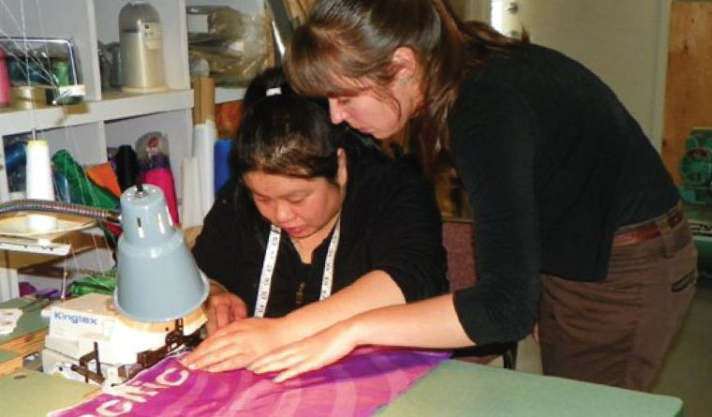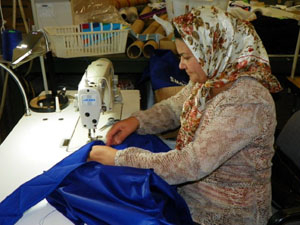
From policy changes that allow investment in community enterprise to a new groundswell of interest in co-operatives, there are changes afoot in Canada and beyond that point to an exciting increase of interest in business that is more tightly integrated with its local community’s well-being, says Melanie Conn.
“Just 10 years ago it wasn’t easy to persuade students, funders and the public that globalization — the latest iteration of the trickle-down promise of conventional economics — was creating unprecedented havoc in regional and national economies,” says Melanie. “(It was) deepening the gap between the very wealthy and those struggling to survive and damaging our social system and our planet beyond repair.”
Melanie has been a feminist activist since the early 1970s. Her commitment to social change that increases women’s equality in every dimension of community has been reflected in many different roles: as a teacher, consultant and participant in numerous collective, collaborative and co-operative enterprises and organizations.
|
Image

|
|
| Common Thread employs women such as Halima, pictured above, who are newcomers to Canada or who have employment barriers and thrive in the flexible work environment. |
Today she is a marketing manager with a social enterprise in B.C., Common Thread Co-op, where she has seen firsthand the possibility and impact of a business achieving success on multiple bottom lines: social, economic and environmental. The co-op hires people who face barriers to employment and trains them in industrial sewing. While employees gain valuable work experience, they also get to work on projects that benefit the environment as they create tote bags and other items out of recycled community banners.
The shift mentioned above is coming about as she and others use their experience, expertise, resources and networks to build new relationships and partnerships with youth, seniors, non-profits, co-ops and credit unions, academia, corporations and some government, Melanie says.
An upcoming summit to promote the advancement of dialogue and action around social procurement provides another example of the energy that exists for this shift.
The June 16-17 Buy Social Summit in Vancouver is intended to connect social enterprises, businesses, and government in exploring the opportunities around social purchasing. People will also have the opportunity to discover practical tools to add social value into existing purchasing.
The event is attracting the likes of purchasers such as the Canadian telecommunications company, Telus, which states that it believes that a diverse environment, internally and with suppliers, will facilitate a broader exchange of perspectives that better reflect society.
“We recognize non-profit social enterprises for the important contributions they make to communities across Canada, and look forward to the summit and the meaningful discussions around including non-profit social enterprises in the procurement process,” says business analyst procurement and supply manager Carlos Cabrero.
Carlos notes that alongside operating a successful Supplier Diversity program, which enables opportunities for historically under-represented groups to compete for its business, Telus routinely makes significant purchases from small businesses “which support our long-standing goal to deliver world-class customer experiences and innovation.”
|
Image

|
|
The Fraser Basin Council, a charitable non-profit society which exists to bring people together to advance sustainability in the Fraser Basin and across B.C., is also joining the summit.
Director of external relations and corporate development Bob Purdy echoes the importance of relationships and partnerships in advancing social procurement and related changes in business.
“The business case for collaboration has never been stronger in these times of fiscal restraint and a tepid economy,” he says.
“Collaboration creates synergies among scarce resources and encourages more holistic consideration of economic, social and environmental factors in decision-making.”
Related Stories:
Summit Aims to Accelerate Social-impact Purchasing
Buy Social Summit Won’t Be Prescribing Answers
Groundwork Laid for Executing Canada’s Buy Social Brand at the Regional Level
You can comment on this story below, or e-mail michelle(at)axiomnews.ca.





